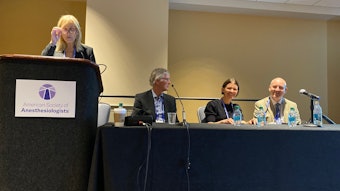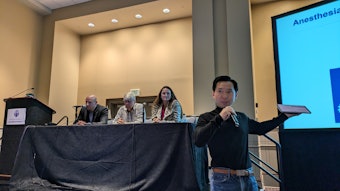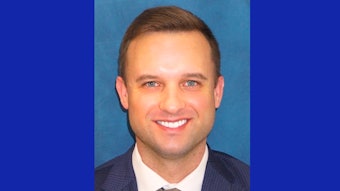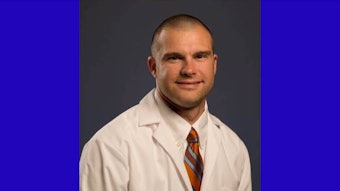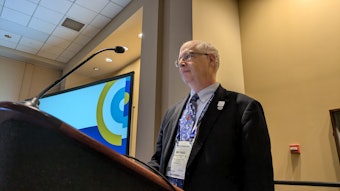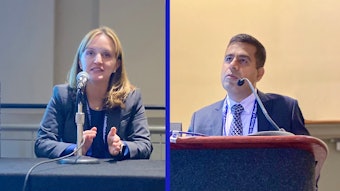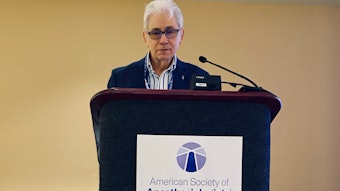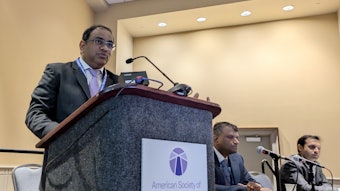The now and near of ambulatory anesthesia
Comprehensive updates in practice guidelines, infection prevention, and the role of AI.
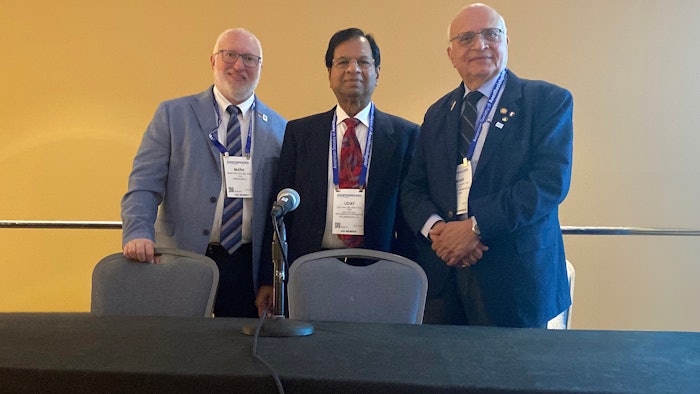
Attendees eagerly gathered to learn more about the latest developments and impending progress in the 2024 session, “Ambulatory Anesthesia: Change is the Constant.” Mark Phillips, MD, FASA, Professor of Anesthesiology at the University of Alabama at Birmingham, began with a high-level rundown of newly published guidance and recommendations.
Most recently, the 2024 AHA/ACC/ACS/ASNC/HRS/SCA/SCCT/SCMR/SVM Guideline for Perioperative Cardiovascular Management for Noncardiac Surgery includes evidence on assessing and managing risk of CVD in patients who undergo elective, noncardiac procedures.
Since the report is roughly 100 pages long, Dr. Phillips shared a few key takeaways:
- A stepwise approach to perioperative cardiac assessment assists clinicians in determining when surgery should proceed or when further evaluation is needed. Perioperative bridging of oral anticoagulant therapy should be used only selectively in those at highest risk for thrombotic complications.
- Patients with newly diagnosed atrial fibrillation, identified during or after noncardiac surgery (NCS), have an increased risk of stroke.
- The guidelines also emphasized the importance of team-based care and consideration of new therapies for managing patients with obesity, diabetes, and/or heart failure, all of which have significant perioperative implications.
Dr. Phillips reviewed ASA’s position on glucagon-like peptide 1 (GLP-1) agonists, which provide medical benefits but, in some cases, raise caution for patients undergoing anesthesia. Clinicians are also advised to assess patient frailty to help determine surgical risk and optimal approach, he said.
“Certain patients may benefit from prehabilitation therapy. This works to help them have better postoperative outcomes by getting them in shape before surgery, including healthier nutrition and physical activity,” said Dr. Phillips.
Uday Jain, MD, PhD, FACA, FASA, provided updates on reducing risk of perioperative infections. Dr. Jain, who is Medical Director of Advanced Surgicare in Santa Clara, California, referenced the Centers for Disease Control and Prevention’s (CDC) 2024 updates to its respiratory virus guidance as well as the ASA-APSF 2023 revised Joint Statement on Elective Surgery/Procedures and Anesthesia for Patients after COVID-19 Infection.
There are also new guidelines on using enteroscopes and duodenoscopes to prevent surgery-related infections, as well as clinical practice updates on mitigating operator infectivity caused by surgical smoke. Medical staff should wear fitted masks, utilize OR ventilation, and evacuate smoke near the site of generation.
Dr. Jain advised attendees that adopting Enhanced Recovery After Surgery (ERAS) pathways can significantly reduce the risk of infections and complications.
Kumar G. Belani, MBBS, MS, FACA, FAAP, SAMBA-F, Professor of Anesthesiology at the University of Minnesota in Minneapolis, explored the impact that artificial intelligence (AI) has had on medicine. AI has brought unprecedented change to the practice of anesthesia, said Dr. Belani.
The three main areas of improvement, he said, are predictive analytics (analyzing vast amounts of patient data in record time to calculate adverse events and allow for early intervention), diagnostic assistance (using machine learning to increase accuracy of medical imaging), and operational efficiency (streamlining documentation, workflow, and resource allocation).
AI has become more relevant in the outpatient setting, said Dr. Belani, as ambulatory surgery centers rapidly take on more complex cases that were once exclusive to hospitals.
“AI can help bridge knowledge gaps, provide real-time decision support, and identify potential complications,” Dr. Belani said. “Integrating AI into anesthesia practice can improve patient outcomes, enhance team coordination, and ensure safety across varied clinical settings."
Although there are ethical concerns to consider, AI is playing an important role in the patient-provider journey – from preoperative assessment through postoperative monitoring – and it will continue to shape the specialty’s future.
